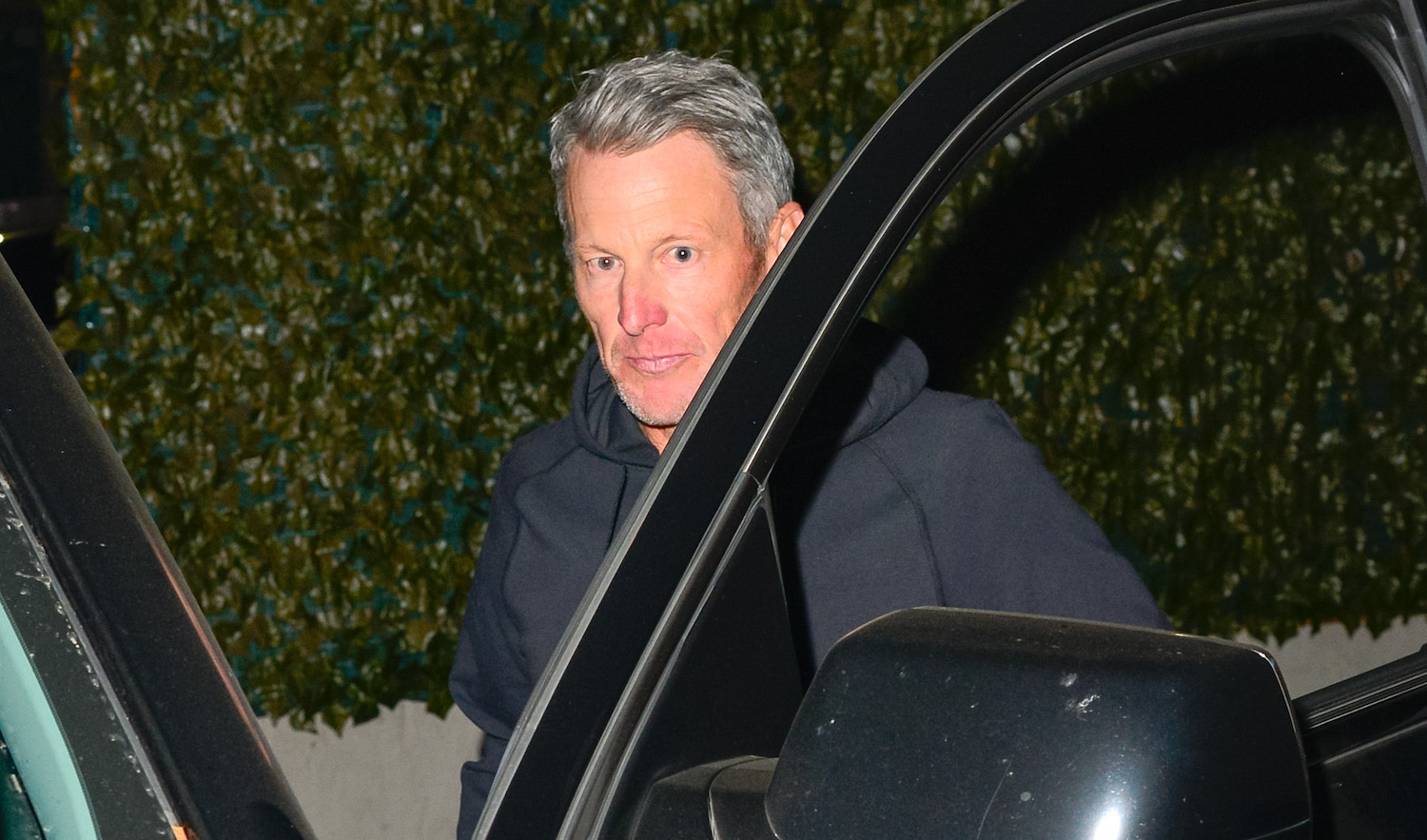Perhaps because he believes not enough people hate him already, cyclist-turned-venture capitalist Lance Armstrong is conducting interviews with the intent of generating "spirited debates" about controversial topics. It's a familiar pivot pursued by disgraced celebrities when the well's run dry. On Saturday he previewed a conversation with Caitlyn Jenner about trans athletes in sports, and had the gall to bring up "fairness."
Have we really come to a time and place where spirited debate is not only frowned upon, but feared? Where people’s greatest concern is being fired, shamed or cancelled? As someone all too familiar with this phenomenon, I feel I'm uniquely positioned to have these conversations. pic.twitter.com/De7xs3PUq3
— Lance Armstrong (@lancearmstrong) June 25, 2023
Is there not a world in which one can be supportive of the transgender community and curious about the fairness of Trans athletes in sport yet not be labeled a transphobe or a bigot as we ask questions? Do we yet know the answers? And do we even want to know the answers?
— Lance Armstrong (@lancearmstrong) June 25, 2023
Armstrong sees himself as ideally positioned to tackle this topic because he's not afraid of getting fired, shamed, or canceled. He says he is "all too familiar with the phenomenon," as though nobody can use the internet to discover why he was stripped of seven Tour de France titles and one episode of Arthur. Who does not remember Lance Armstrong being ruthlessly and unfairly shamed in the public square for the thoughtcrime of destroying Greg LeMond's relationship with Trek? How could you learn of Armstrong being punished for running a campaign of intimidation and terror against his teammates and their families and not think of what a dangerous precedent this sets for anyone?
Armstrong does not stake out a definitive position in his tweets, but by framing his entry into the discourse as a free-speech issue, teasing a video interview with Jenner, and expressing curiosity about "fairness," you get a sense of where this is going. The "debate" about whether to allow trans people to compete alongside their cisgendered counterparts is about restricting trans rights. To frame it as a question of sporting integrity would be deeply cynical, even if a notorious cheater weren't the one making it.
Armstrong's name is synonymous with breaking the rules, but it's worth remembering how comprehensive his program of cheating was. He not only pumped himself with EPO and took illegal blood transfusions, but he also ran a sophisticated, team-wide operation. Teammates were intimidated if they didn't comply, and he tried to destroy anyone who flipped on him; he threatened Levi Leipheimer's wife, texting her "Run don't walk" after Leipheimer testified against Armstrong. When massage therapist Emma O'Reilly testified that she once applied makeup to Armstrong to cover up a needle mark, he publicly defamed her as an alcoholic who slept her way to the top of the sport (he's since expressed regret for that, calling himself "an idiot in full attack mode," and O'Reilly's forgiven him). Journalists who publicly asked questions about doping were targeted by Armstrong, and he often went above their heads to try and get them fired. This guy defending the concept of fairness is like Dracula making the case for veganism.
The reason Armstrong might be releasing this series now, outside of an innate desire for attention, is that this is the one month where Americans are most likely to pay attention to cycling. The Tour de France starts next weekend, and Armstrong will be podcasting his way through it on his podcast The Forward. The U.S. road cycling championships also wrap up on Sunday in Knoxville; Jenner voiced her support for a group of protestors in town to scream at trans people during the races and hold a big rally, all under the noxious premise of protecting women's sports.
USA Cycling is heavily bankrolled by the Walton family, and over the past few years, the organization has fumbled its way through a series of relevant controversies. Leia Genis was stripped of her silver medal at the 2022 track cycling championships after USAC ruled that she hadn't filed the proper paperwork to compete in the elite women's events; Genis said she had no problems competing when she wasn't getting results, but "now that I am doing well at nationals, I am suddenly ineligible to compete. The transphobia is so blatant it's almost laughable." Like Genis, Austin Killips has become the target of anti-trans protestors now that she's succeeding and winning races like the Tour of the Gila and the Belgian Waffle Ride. The 2021 cyclocross nationals were also plagued by transphobic protestors, and despite their omnipresence, USA Cycling has remained silent. The organization's only real public statement was a survey sent to their athletes in May about whether trans athletes should be allowed to participate, and the survey drew heavy criticism for the way it seems to have been written specifically to elicit an anti-trans response.
Even though Armstrong has been banned for life by the U.S. Anti-Doping Agency, he remains the most famous American cyclist by a significant margin. With no ability to race, even in small-time events, he still has a desire to stay in the public eye, mainly through his podcast and an appearance on a new Fox reality TV show. It's grim that someone with such a rotten reputation still feels comfortable to scrutinize trans athlete participation in sports on the grounds of fairness. But Armstrong is correct about one thing: He has no more respect to lose.






